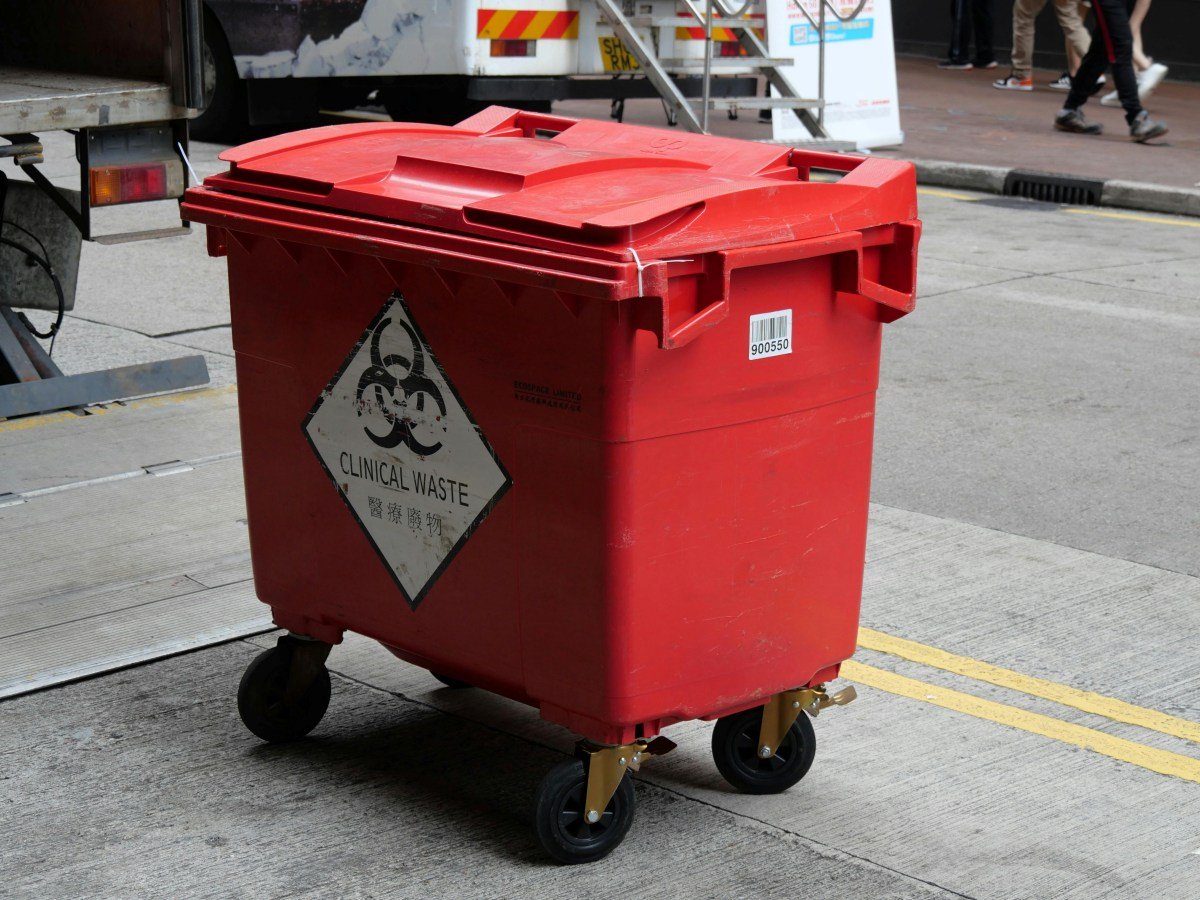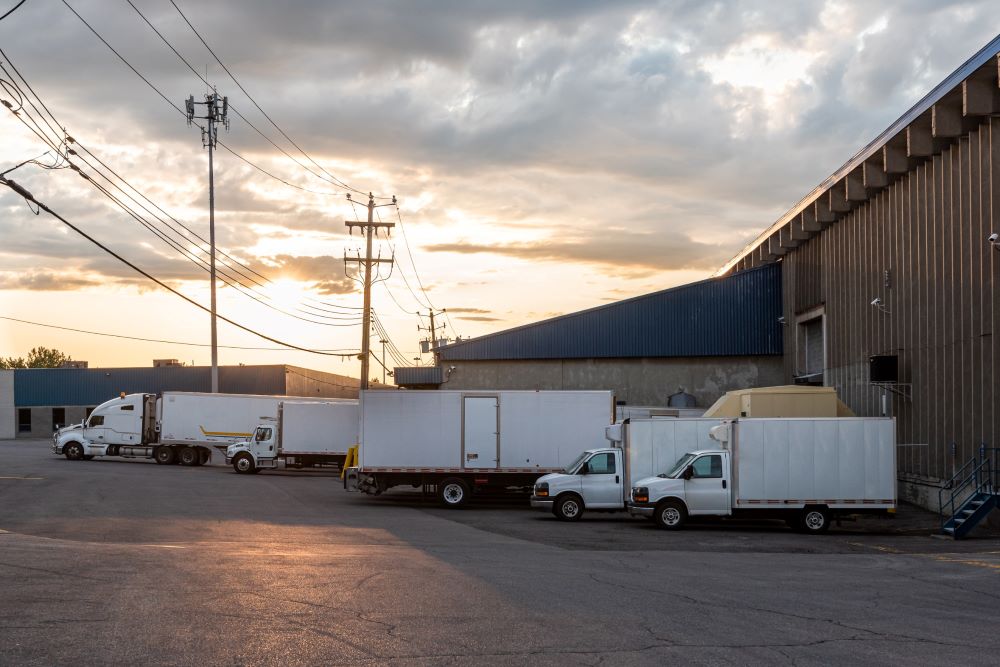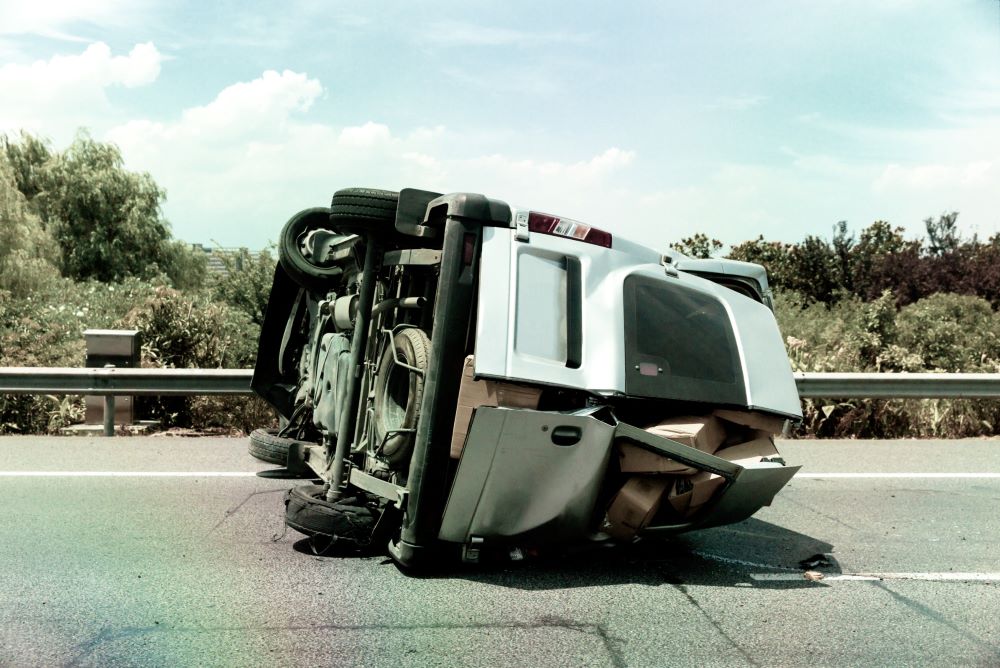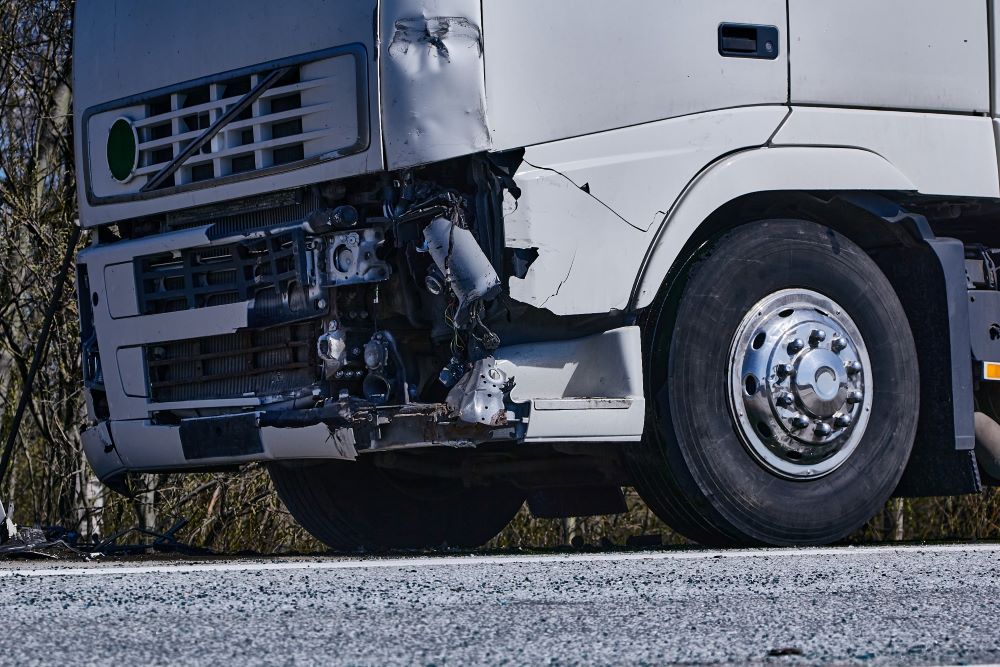
Several risks can put your semi-truck out of commission unexpectedly. It could get damaged in a crash, fire, hailstorm, or other natural disasters. Worse still, your semi-truck can get vandalized or stolen.
What do you do if any of these unfortunate events occur and you don’t have cash set aside to repair or replace your truck? How do you get back to business fast? This is where semi-truck physical damage insurance comes into play.
We’ve prepared this quick guide to help you understand everything you should know about physical damage trucking insurance – what is it, and what exactly does it cover? Do you need a physical damage policy?
What Is Physical Damage Insurance?
Physical damage insurance encompasses various types of trucking insurance that safeguard commercial vehicles from a range of risks while on the road. These include:
- Collision coverage: Covers repair or replacement costs if your commercial truck is damaged in a collision or overturns.
- Comprehensive coverage: Covers repairs or replacement for non-collision incidents beyond your control, such as theft, vandalism, fire, glass and windshield damage, accidents involving animals, bad weather, or other acts of nature.
- Fire and theft insurance with CAC (Combined Additional Coverage): A specialized form of comprehensive insurance for heavy vehicles, covering specific non-collision incidents like fire, theft, vandalism, floods, lightning, earthquakes, and other natural disasters, excluding windshield claims.
Most trucking companies rely on physical damage coverage to prevent business interruption and mitigate significant financial losses from unexpected events.
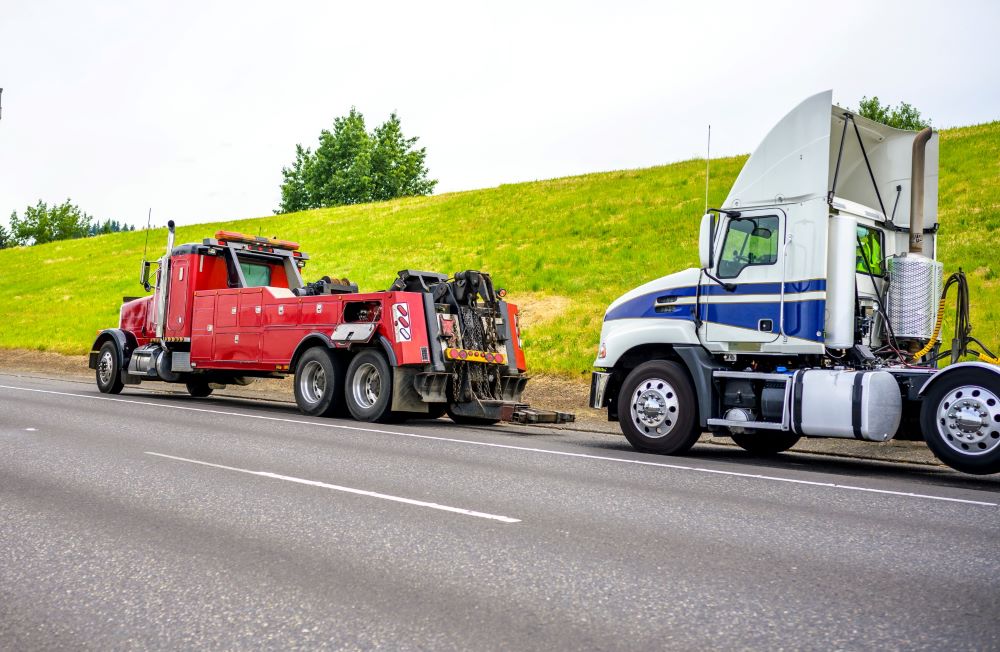
What Physical Damage Insurance Covers
Insurance policies differ per insurer. But nearly all physical damage insurance policies offer the following coverage options:
Roadside Assistance and Towing
Commercial vehicles break down often, and towing your vehicle after an unexpected event can be expensive. With roadside assistance and towing physical damage coverage, your insurance provider will:
- Cover the expenses for onsite repair work if a covered loss occurs
- Reimburse the cost of towing your damaged vehicle after an accident
Some of the best physical damage coverage policies provide an extended towing option. They’ll let you get your semi-truck towed to your garage or one that’s close to your trucking company’s main headquarters (instead of the nearest garage) at no additional charge.
Downtime Coverage
Extended truck downtime halts your business operations, resulting in daily financial losses. Downtime coverage provides compensation, typically a set amount per agreed time, until your vehicle is back on the road.
Emergency Expenses
This coverage is beneficial for over-the-road (OTR) truck drivers involved in distant accidents. It covers expenses for their safety post-incident and facilitates their safe return home, including additional lodging, food, and transportation costs.
Loan Gap Coverage
If your truck is declared a total loss because of a serious accident or theft, and you still owe money on the commercial vehicle loan, loan gap coverage steps in. This coverage fills the gap between the actual cash value of your truck at the time of the covered loss and the outstanding loan balance.
For example, if you owe $25,000 on your loan but the current actual cash value of your vehicle is $20,000, your insurer without loan gap coverage would only pay you $20,000 (minus deductible). With loan gap coverage, you’d receive the actual cash value of your truck ($20,000) plus the $5,000 loan gap amount, totaling $25,000 (minus deductible) to help settle the outstanding loan balance.
For more information on gap insurance, check out this detailed guide.

Truck Rental Costs
If a truck driver gets into an accident mid-trip, you must find a way to deliver the cargo to its final destination. Truck rental costs help you cover the costs of renting another truck to complete the trip and fulfill your obligation to a client.
Equipment Floater Insurance
Equipment floater insurance protects valuable tools or equipment not permanently attached to a truck, but necessary for specific trucking operations.
Rental Reimbursement
Rental reimbursement covers renting another truck to continue your trucking operations while your covered vehicle is under repair after a covered loss. Most insurance companies provide rental reimbursement for an agreed period – often up to 120 days after a covered loss.
What Physical Damage Won’t Cover – Exceptions and Restrictions
Physical damage insurance won’t cover the following risks:
- Damage to cargo and personal effects, including a driver’s personal items, electronic equipment, chains, binders, and non-permanently attached equipment.
- General wear and tear on various vehicle parts
- Medical expenses
- Lawsuit fees
- Damage to other vehicles
Physical damage insurance doesn’t cover non-owned trailer damages, including those used in a trailer interchange agreement.
Who Needs Trucking Physical Damage Insurance?
You will benefit from and should consider purchasing physical damage coverage if you belong to any of the following three categories:
Owner-operators: Owner-operators are responsible for insuring all commercial vehicles against physical damages, even if they operate under a motor carrier’s lease. Usually, leased owner-operators only receive primary liability insurance through their motor carrier.
For-hire motor carriers: Unless exclusively working with owner-operators, trucking companies with a fleet of commercial vehicles need physical damage coverage.
Private carriers: Individuals transporting their own cargo require physical damage insurance to protect their vehicle.

Physical Damage Coverage Deductibles
When buying physical damage truck insurance, you’ll need to choose a deductible, which is the amount you’ll pay out-of-pocket when making an insurance claim. You have different deductible options to consider based on your insurance requirements:
- Single deductible for accounts with multiple coverage options.
- Customized aggregate deductible for fleets.
Select your deductible thoughtfully as it impacts your insurance costs. Opting for a higher deductible usually reduces monthly payments, but ensure it’s an amount you can comfortably afford to pay when necessary.
Final Thoughts
While the law doesn’t mandate purchasing physical damage insurance, it’s a crucial coverage policy to ensure the smooth operation of your trucking business.
To find the best physical damage insurance provider, obtain quotes from multiple insurers and compare them. Look for specific features and terms, such as discounts and the availability of a single deductible endorsement at no extra cost.
Assess how well their terms align with your business’s current and future objectives. Check out our detailed guide on commercial truck insurance for further insights into selecting an insurance provider.
Additionally, consider our add-on coverage options for extra protection. If you ever require vehicle financing to recover from an unforeseen setback, don’t hesitate to contact Mission Financial Services. We’re always here to assist you.







